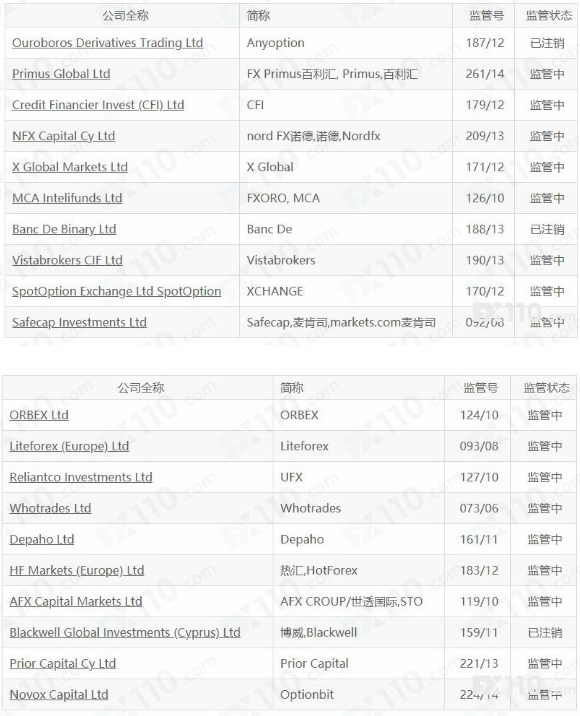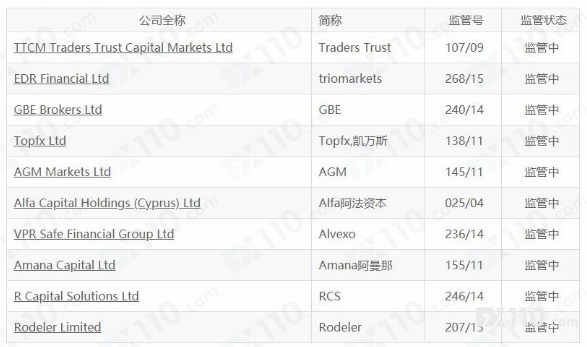What CySEC Is?
The Cyprus Securities Exchange Commission, or just CySEC, is the regulatory body for the financial industry. Its mission is to provide effective supervision to ensure trader protection. It is an independent regulatory authority that controls investment services and transactions in transferable securities carried out in Cyprus.
CySEC was launched in 2001 as a public legal entity, and then in 2004, Cyprus became a European Union member state. From that time, CySEC regulations and operations have had to meet the European financial regulatory framework’s terms.
What does all of that mean? CySEC operates under the branch of European regulators advocating for secure trading, and therefore, connects with European regulations such as the Markets in Financial Instruments Directive (MiFID) and The Markets in Financial Instruments Regulation (MiFIR).
MiFID and MiFIR are required for firms operating in the European Union. These European regulations are responsible for the transparency across the European Union financial markets.
Regulator Is a Key
1. Investor Protection: CySEC ensures that regulated brokers comply with strict rules and regulations designed to protect the interests of investors. This includes measures such as the segregation of client funds, ensuring that client assets are kept separate from the broker’s operational funds. Additionally, CySEC requires brokers to participate in investor compensation funds, which can provide financial protection to clients in the event of a broker’s insolvency.
2. Transparent Operations: CySEC-regulated brokers are required to operate with transparency, providing clear and accurate information to clients. They must disclose important details about their services, fees, and potential risks associated with trading.
3. Compliance with EU Standards: Cyprus is a member of the European Union, and CySEC operates under EU financial regulations. This means that CySEC-regulated brokers must adhere to EU directives and guidelines, ensuring a certain level of financial stability and adherence to best practices.
4. Dispute Resolution: CySEC provides a platform for resolving disputes between investors and regulated brokers. If a client has a complaint or faces any issues with a CySEC-regulated broker, they can file a complaint with CySEC, which will investigate the matter and take appropriate action if necessary.
5. Passporting Rights: CySEC-regulated brokers have the advantage of passporting rights within the EU. This means that once a broker obtains regulation from CySEC, they can offer their services across all EU member states without the need for additional licenses or approvals. This allows investors to access a broader range of investment opportunities and trade with confidence across the EU.
However, while CySEC regulation offers certain benefits, it’s important to note that regulation alone does not guarantee the quality or performance of a broker. It’s still crucial to conduct thorough research, consider other factors such as reputation, trading conditions, customer support, and reviews before choosing a broker.
Regulated and Non-Regulated Brokers
To protect yourself, you should choose a regulated broker. Why is the request so strict? Let’s explain. A regulated broker is a broker whose actions are monitored by a regulator.
Who is the regulator? It’s the type of supervision which aim is to prevent and investigate fraud in the market, keep it transparent and make sure that clients are treated with fairness, their funds are safe, and data is secure.
On the contrary, non-regulated brokers have no control of that kind.
It creates opportunities for illegal market activities, including unwarranted commissions, loose spreads, hidden Terms and Conditions, and even withdrawal restrictions. Traders and their funds suffer from this activity.
There are a total of 214 licensed brokers regulated by CySEC, the Cyprus Securities and Exchange Commission.


So, the best advice we can give you is to avoid brokers without regulation.
